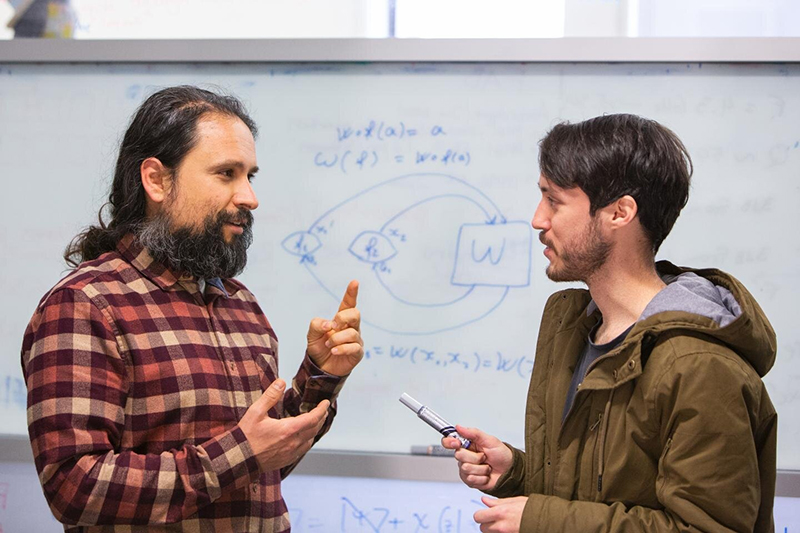No one has yet managed to travel through time – a minimum of to our knowledge – but the question of whether or not such a feat would be theoretically possible continues to fascinate scientists.
As movies like The Terminator, Donnie Darko, Back to the long run and plenty of others show, on the road in time creates lots of problems for the elemental rules of the Universe: if you return in time and stop your parents from meeting, for example, how are you able to possibly exist so as to travel back in time within the first place?
It's a monumental head-scratcher referred to as the 'grandfather paradox', but now a physics student Germain Tobar, from the University of Queensland in Australia, says he has found out the way to "square the numbers" to create time travel viable without the paradoxes.
"Classical dynamics say if you recognize the state of a system at a selected time, this could tell us the whole history of the system," says Tobar.
"However, Einstein's theory of general theory of relativity predicts the existence of your time loops or time travel – where an occasion is both within the past and way forward for itself – theoretically turning the study of dynamics on its head."
What the calculations show is that space-time can potentially adapt itself to avoid paradoxes.
To use a topical example, imagine a time traveller journeying into the past to prevent a disease from spreading – if the mission was successful, the time traveller would haven't any disease to travel back in time to defeat.
Tobar's work suggests that the disease would still escape another way, through a special route or by a distinct method, removing the paradox. regardless of the time traveller did, the disease wouldn't be stopped.
Tobar's work isn't easy for non-mathematicians to poke into, but it's at the influence of deterministic processes (without any randomness) on an arbitrary number of regions within the reference frame, and demonstrates how both closed timelike curves (as predicted by Einstein) can slot in with the foundations of power and classical physics.
"The maths checks out – and also the results are the things of phantasy," says physicist Fabio Costa from the University of Queensland, who supervised the research.

Fabio Costa (left) and Germain Tobar (right). (Ho Vu)
The new research smooths out the matter with another hypothesis, that point travel is feasible but that point travellers would be restricted in what they did, to prevent them creating a paradox. during this model, time travellers have the liberty to try and do whatever they need, but paradoxes aren't possible.
While the numbers might seem, actually bending space and time to induce into the past remains elusive – the time machines that scientists have devised to date are so high-concept that for they currently only exist as calculations on a page.
We might get there in the future} – physicist certainly thought it had been possible – and if we do then this new research suggests we might be liberated to do whatever we wanted to the globe in the past: it'd readjust itself accordingly.
"Try as you would possibly to form a paradox, the events will always adjust themselves, to avoid any inconsistency," says Costa. "The range of mathematical processes we discovered show that point travel with discretion is logically possible in our universe with none paradox."







No comments:
Post a Comment